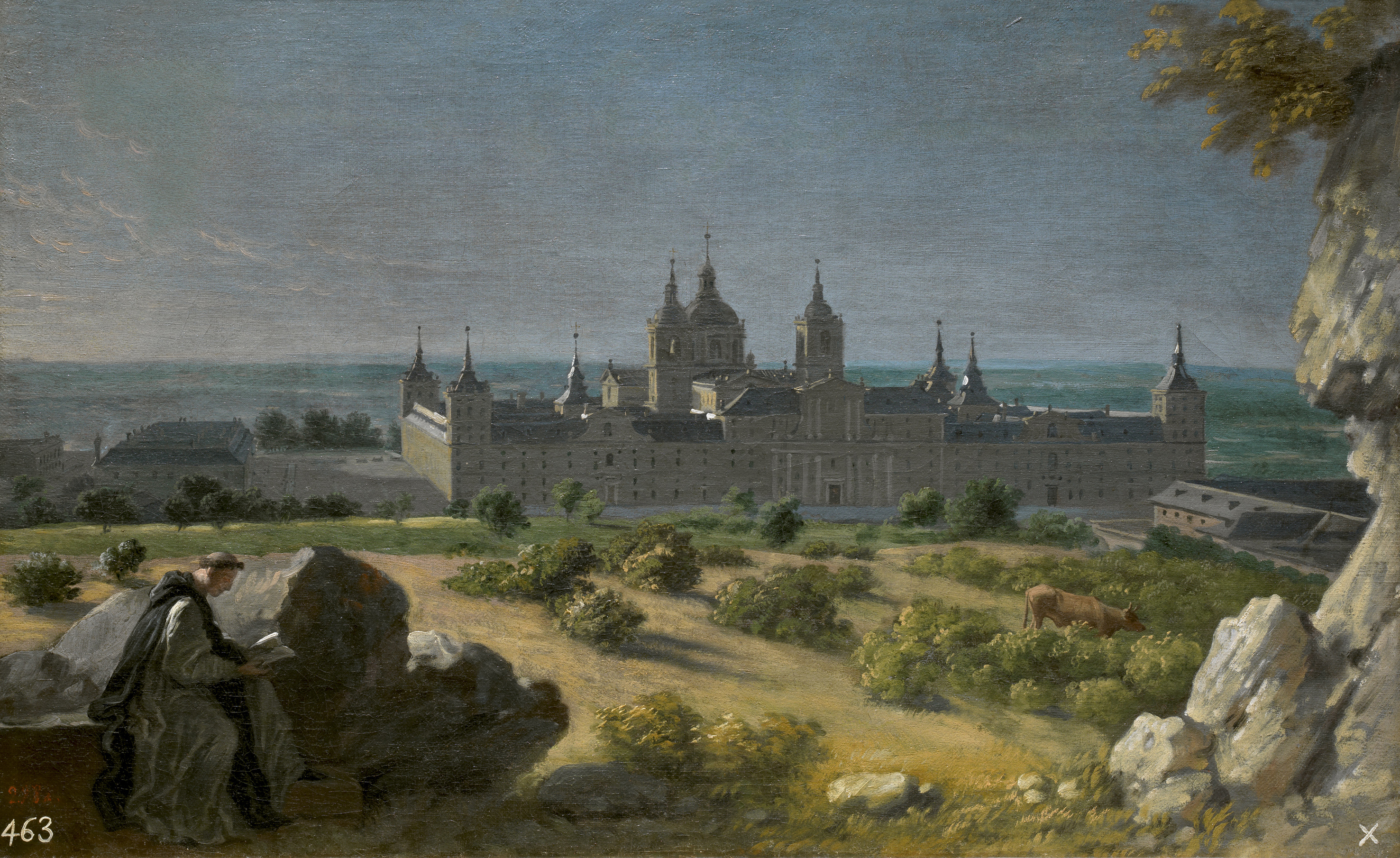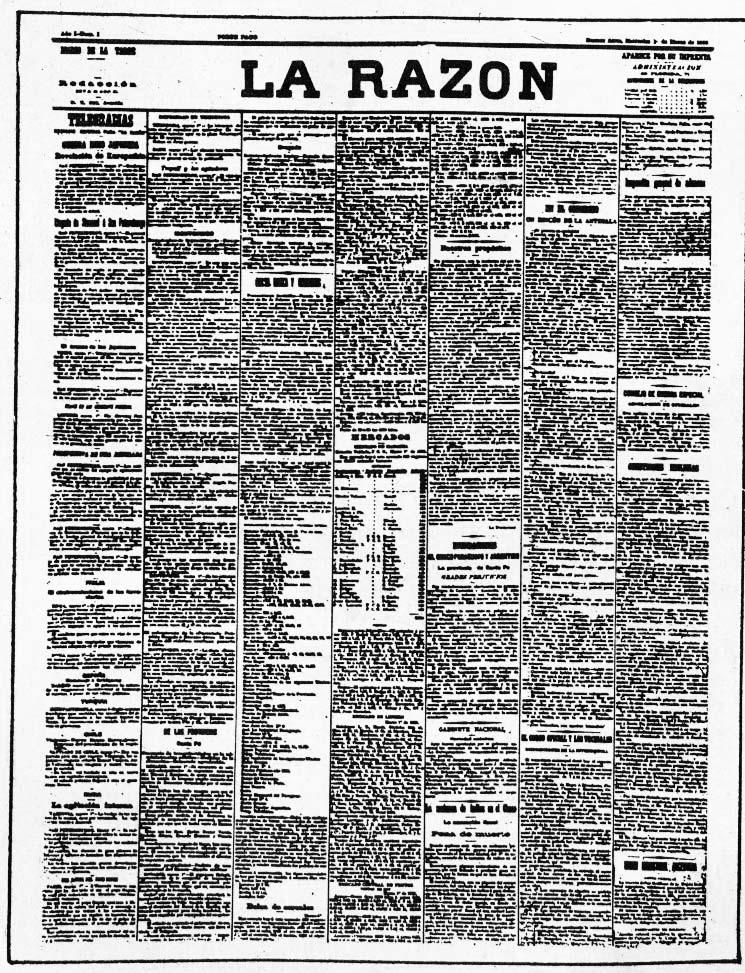|
Jesús Palacios Trigo
Jesús Joaquín Palacios Trigo (born 1964) is a Spanish author, journalist and film critic. Biography Palacios was born in 1964 in San Lorenzo de El Escorial, Spain. He began his career with his father Joaquin Palacios, editor of ''Antología de la poesía macabra española e hispano americana'' (Valdemar 2000), editing fanzines like ''Excalibur'' (1984) and ''El Grito'' (1986), focused in horror, fantastic and macabre, a field in which is today considered a cult author. Palacios attended the prestigious Complutense University of Madrid, where he graduated in Journalism. Palacios is the author of numerous books, like '' Goremanía'', ''Satán en Hollywood. Una historia mágica del cine'', or the critically praised ''Psychokillers''. His critics has been published by many of the main film magazines in Spanish language, like Fotogramas, Nosferatu or CINE2000. He has collaborated with many important weekly and daily news papers like Tiempo, Tribuna, Interviú, Qué Leer, ... [...More Info...] [...Related Items...] OR: [Wikipedia] [Google] [Baidu] |
San Lorenzo De El Escorial
San Lorenzo de El Escorial, also known as El Escorial de Arriba, is a town and municipality in the Community of Madrid, Spain, located to the northwest of the region in the southeastern side of the Sierra de Guadarrama, at the foot of Mount Abantos and , from Madrid. It is head of the eponymous judicial party. The settlement is popularly called El Escorial de Arriba, to differentiate it from the neighbouring village of El Escorial, also known as El Escorial de Abajo. The Monastery of El Escorial is the most prominent building in the town and is one of the main Spanish Renaissance monuments. Especially remarkable is the Royal Library, inside the Monastery. The monastery and its historic surroundings were declared a World Heritage Site UNESCO on November 2, 1984, under the name of "El Escorial, monastery and site". The site also enjoys protection on Spain's heritage register; since June 21, 2006, it has been protected by the Community of Madrid as a Property of Cultural Int ... [...More Info...] [...Related Items...] OR: [Wikipedia] [Google] [Baidu] |
Living People
Related categories * :Year of birth missing (living people) / :Year of birth unknown * :Date of birth missing (living people) / :Date of birth unknown * :Place of birth missing (living people) / :Place of birth unknown * :Year of death missing / :Year of death unknown * :Date of death missing / :Date of death unknown * :Place of death missing / :Place of death unknown * :Missing middle or first names See also * :Dead people * :Template:L, which generates this category or death years, and birth year and sort keys. : {{DEFAULTSORT:Living people 21st-century people People by status ... [...More Info...] [...Related Items...] OR: [Wikipedia] [Google] [Baidu] |
1964 Births
Events January * January 1 – The Federation of Rhodesia and Nyasaland is dissolved. * January 5 - In the first meeting between leaders of the Roman Catholic and Orthodox churches since the fifteenth century, Pope Paul VI and Patriarch Athenagoras I of Constantinople meet in Jerusalem. * January 6 – A British firm, the Leyland Motor Corp., announces the sale of 450 buses to the Cuban government, challenging the United States blockade of Cuba. * January 9 – ''Martyrs' Day'': Armed clashes between United States troops and Panamanian civilians in the Panama Canal Zone precipitate a major international crisis, resulting in the deaths of 21 Panamanians and 4 U.S. soldiers. * January 11 – United States Surgeon General Luther Terry reports that smoking may be hazardous to one's health (the first such statement from the U.S. government). * January 12 ** Zanzibar Revolution: The predominantly Arab government of Zanzibar is overthrown by African nationalist rebels; a ... [...More Info...] [...Related Items...] OR: [Wikipedia] [Google] [Baidu] |
Calle 13 (TV Channel)
Calle 13 is a Spanish pay television channel. Owned by Universal Studios Networks Spain, Calle 13 promotes itself as a channel of suspense and action. Calle 13 (13th Street) was launched in 1999 and its schedule is made of TV series and movies of action, suspense, terror, mystery and science fiction, both Spanish and international, classic and modern. With the birth of sister channel Sci Fi Channel in June 2006, most of the science-fiction series Calle 13 used to show were moved to the new channel. Programming *''Grimm'' *''Rookie Blue'' *''Numb3rs'' * All series in the ''Law & Order'' franchise. *''The Closer'' *''Person of Interest'' *''The 4400'' *''Alfred Hitchcock Presents'' *'' Andromeda'' * *'' Blood Ties'' *'' Brimstone'' *''Castle'' *''Chuck'' *''Columbo'' *''El Comisario'' *''Jericho'' *'' The Dead Zone'' * *''The Event'' *''Hercules: The Legendary Journeys'' and '' Xena: Warrior Princess *'' *'' Homicide: Life on the Street'' *'' The Listener'' *''MacGyver'' *' ... [...More Info...] [...Related Items...] OR: [Wikipedia] [Google] [Baidu] |
San Sebastián
San Sebastian, officially known as Donostia–San Sebastián (names in both local languages: ''Donostia'' () and ''San Sebastián'' ()) is a city and Municipalities of Spain, municipality located in the Basque Country (autonomous community), Basque Autonomous Community, Spain. It lies on the coast of the Bay of Biscay, from the France–Spain border. The capital city of the province of Gipuzkoa, the municipality's population is 188,102 as of 2021, with its metropolitan area reaching 436,500 in 2010. Locals call themselves ''donostiarra'' (singular), both in Spanish and Basque language, Basque. It is also a part of Basque Eurocity Bayonne-San Sebastián. The main economic activities are almost entirely service sector, service-based, with an emphasis on commerce and tourism, as it has long been one of the most famous tourist attraction, tourist destinations in Spain. Despite the city's small size, events such as the San Sebastián International Film Festival and the San Sebastia ... [...More Info...] [...Related Items...] OR: [Wikipedia] [Google] [Baidu] |
Semana De Cine Fantástico Y De Terror
''Semana'' (Spanish: ''Week'') is a weekly magazine in Colombia. History ''Semana'' was founded in 1946 by Alberto Lleras Camargo (who would become president of Colombia in 1958) and that folded in 1961. It was relaunched by journalist Felipe López Caballero in 1983. Development , the person who restarted the magazine, took two earlier Colombian magazines as models. One was Camargo's ''Semana''; the other was '' :es:Alternativa'', a left-wing weekly published by Enrique Santos and Gabriel García Márquez. The foreign magazines that he strove to imitate were ''Time'' and '' Newsweek''. Recalling the prestige that had been enjoyed by Lleras's magazine, López asked for, and was given, permission to use the same name. The first issue came out on 12 May 12 1982. Its cover story was about terrorism. Some of ''Semana''s most important reporting has been about Pablo Escobar, the drug trafficking kingpin. In the 1980s, López was one of the two "big whistleblowers and cri ... [...More Info...] [...Related Items...] OR: [Wikipedia] [Google] [Baidu] |
Festival De Cine De Gijón
A festival is an event ordinarily celebrated by a community and centering on some characteristic aspect or aspects of that community and its religion or cultures. It is often marked as a local or national holiday, mela, or eid. A festival constitutes typical cases of glocalization, as well as the high culture-low culture interrelationship. Next to religion and folklore, a significant origin is agricultural. Food is such a vital resource that many festivals are associated with harvest time. Religious commemoration and thanksgiving for good harvests are blended in events that take place in autumn, such as Halloween in the northern hemisphere and Easter in the southern. Festivals often serve to fulfill specific communal purposes, especially in regard to commemoration or thanking to the gods, goddesses or saints: they are called patronal festivals. They may also provide entertainment, which was particularly important to local communities before the advent of mass-produced e ... [...More Info...] [...Related Items...] OR: [Wikipedia] [Google] [Baidu] |
Festival De Cine De Sitges
The Sitges Film Festival ( ca, Festival Internacional de Cinema Fantàstic de Catalunya, links=no) is an annual film festival held in Sitges, Spain, specialized in fantasy film, fantasy and horror films, of which it is considered one of the world's foremost international festivals. Established in 1968, the festival takes place every year, usually in early October. The 55th edition of the festival will be held from October 6 to 16, 2022. This year, in the 22nd edition of the Awards 15 film schools and universities around Catalonia, which have submitted a total of 32 audiovisual works, will also participate. Venues The main venue of the Sitges Film Festival is the Auditori (Auditorium), located in the Hotel Melià Sitges (in the Port d'Aiguadolç area), which has a capacity of 1,384 seats. As of 2020, other venues are: Cine El Retiro (El Retiro Cinema), Cine Prado (Prado Cinema), Brigadoon - L'escorxador (a beautiful modernista building), Tramuntana (another cinema hall in Hotel ... [...More Info...] [...Related Items...] OR: [Wikipedia] [Google] [Baidu] |
Semana Negra De Gijón
''Semana'' (Spanish: ''Week'') is a weekly magazine in Colombia. History ''Semana'' was founded in 1946 by Alberto Lleras Camargo (who would become president of Colombia in 1958) and that folded in 1961. It was relaunched by journalist Felipe López Caballero in 1983. Development , the person who restarted the magazine, took two earlier Colombian magazines as models. One was Camargo's ''Semana''; the other was '' :es:Alternativa'', a left-wing weekly published by Enrique Santos and Gabriel García Márquez. The foreign magazines that he strove to imitate were ''Time'' and ''Newsweek''. Recalling the prestige that had been enjoyed by Lleras's magazine, López asked for, and was given, permission to use the same name. The first issue came out on 12 May 12 1982. Its cover story was about terrorism. Some of ''Semana''s most important reporting has been about Pablo Escobar, the drug trafficking kingpin. In the 1980s, López was one of the two "big whistleblowers and critic ... [...More Info...] [...Related Items...] OR: [Wikipedia] [Google] [Baidu] |
Festival Internacional De Cine De Las Palmas De Gran Canaria
The Las Palmas de Gran Canaria International Film Festival ( es, Festival Internacional de Cine de Las Palmas de Gran Canaria) is an international film festival that is held in Las Palmas in the island of Gran Canaria in the Canary Islands. The festival takes place every year. It was first held in 2000. The festival is held in several venues in the city.. In 2015 the Palacete Rodriguez Quegles The Palacete Rodríguez Quegles is a mansion, or small palace, in Las Palmas, capital of Gran Canaria island, in the Canary Islands of Spain. It was built around 1901 as an elaborate residence for a wealthy businessman, then in 1972 sold to the cit ... became the base for the festival. Winners of the Lady Harimaguada de Oro References External links * Tourist attractions in Las Palmas Canarian culture Film festivals in Spain 2000 establishments in Spain Recurring events established in 2000 {{film-festival-stub ... [...More Info...] [...Related Items...] OR: [Wikipedia] [Google] [Baidu] |
La Razón (Buenos Aires)
''La Razón'' was a local newspaper distributed in the public transport in Buenos Aires, Argentina. History It was founded in 1905 by Argentine journalist Emilio Morales as an afternoon (''Quinta edición'') and evening (''Sexta edición'') newspaper in broadsheet format. The daily was acquired by a prominent news editor, José A. Cortejarena, in 1911 and became the first newspaper in Argentina owned by a journalist. Cortejarena died in 1921, and the paper was directed by Ángel L. Sojo, during whose tenure ''La Razón'' became known for scooping the city's numerous other papers. The daily also became the first to publish cartoonist Dante Quinterno's ''Patoruzú'' (an enduring Argentine comic strip) in 1928. ''La Razón'' was acquired by Ricardo Peralta Ramos, the scion of the founding family of seaside Mar del Plata, in 1939. Peralta Ramos named Félix Laiño director, and the paper's broadsheet layout was reformatted and more heavily illustrated. The paper grew steadily, ... [...More Info...] [...Related Items...] OR: [Wikipedia] [Google] [Baidu] |




